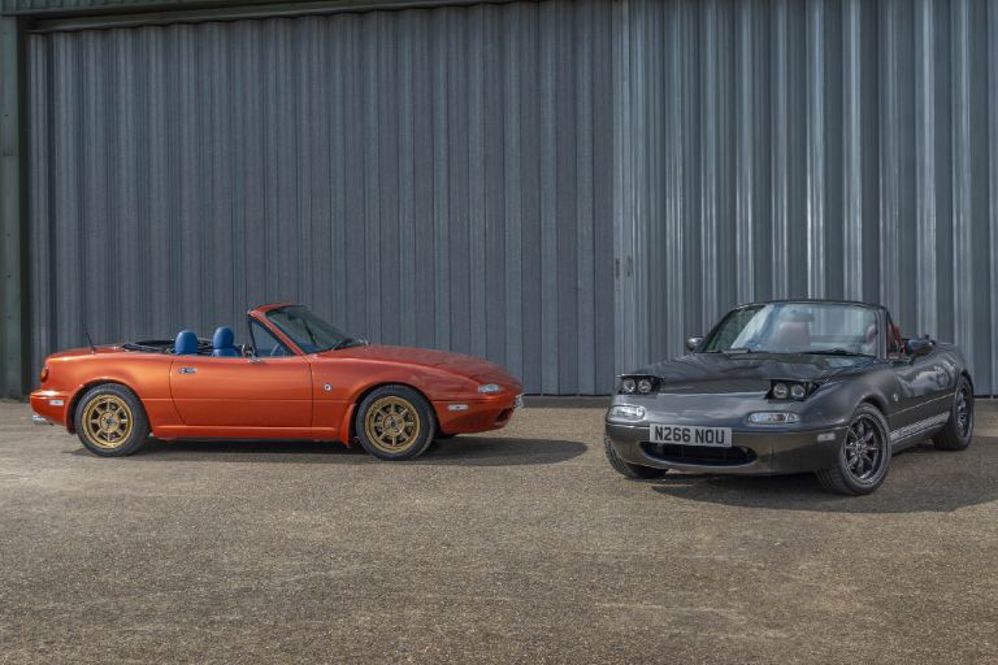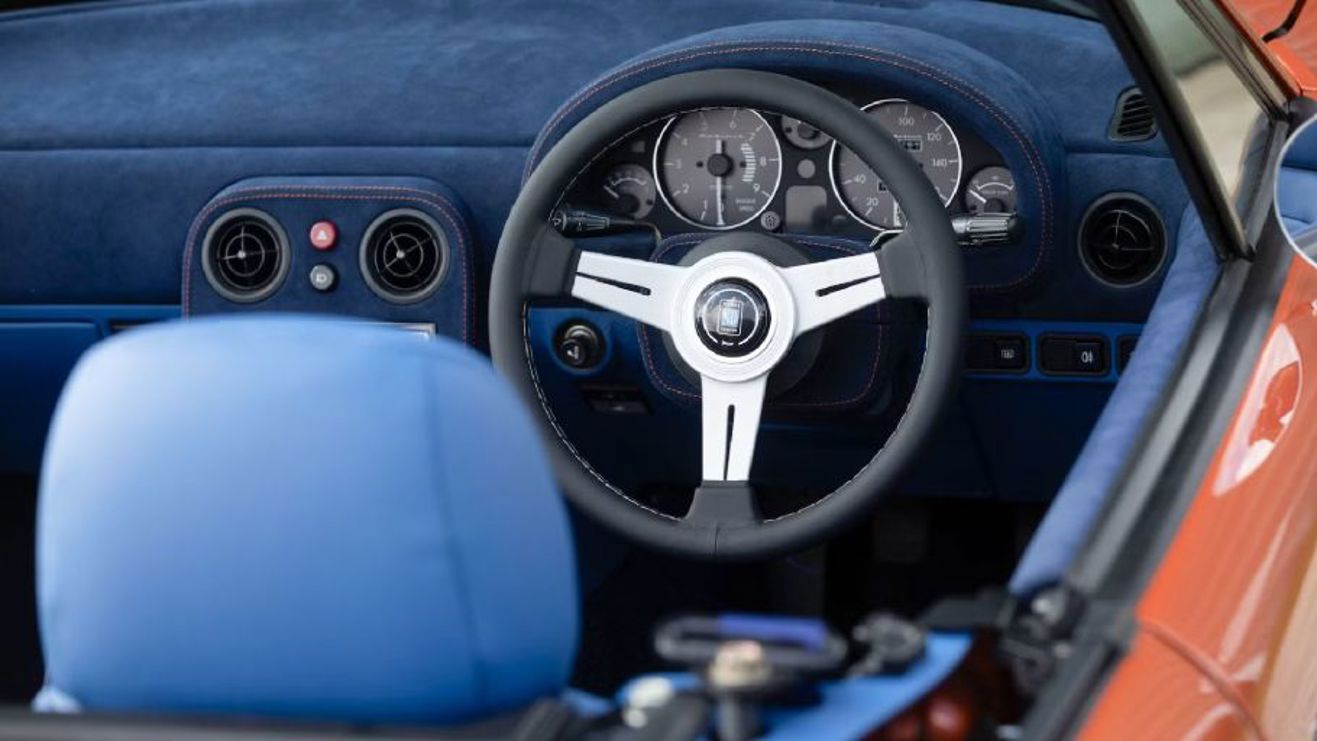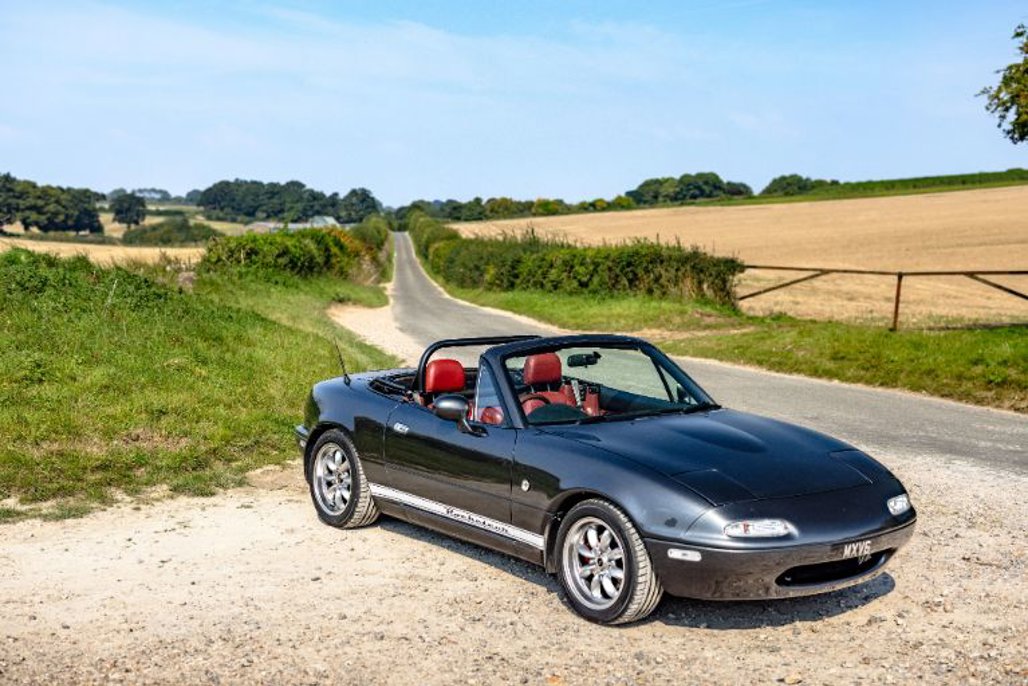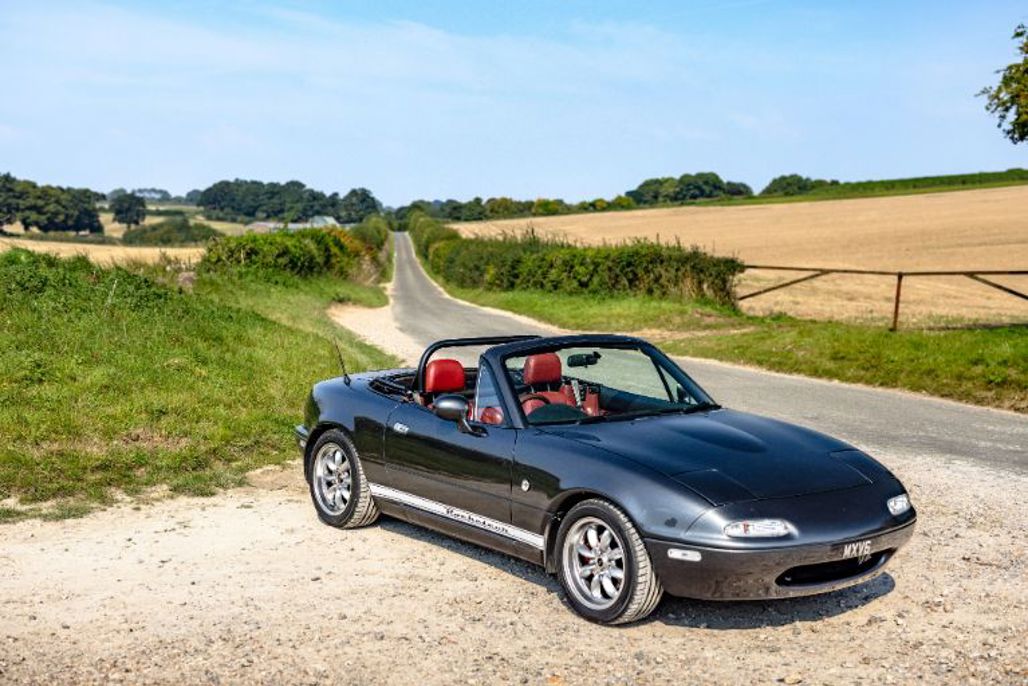A UK Mazda MX-5 restomod specialist is preparing to launch a V6-powered version of the classic roadster with 280kW - meaning it'll have a similar power-to-weight ratio to a McLaren 620R, Lamborghini Huracan or Ferrari F40.

Rocketeer Cars is a well-established company building beautifully modified versions of the classic NA and NB-generation MX-5. Its signature upgrade is a Jaguar-sourced AJ30 3.0-litre V6 engine that gives the little roadster 209kW. The full package is marketed as the Rocketeer MXV6.
"Rocketeer and its MXV6 RestoBuild sports car is a reaction to today’s modern supercars that have become faster, but more anodyne to drive, and whose limits cannot be explored in normal driving conditions," says the company.
It has produced 30 "Turn Key" and "RestoMod" vehicles, and sold 150 self-build kits.
New investment has been the catalyst for the planned launch of two new models in 2025. The first is the Rocketeer Keiryo (Japanese for "lightweight"), which is being developed to a target weight of 850kg and an output of 280kW (redline: 9000rpm), hence the supercar comparisons.

The company also plans to complete an MX-5 NC project, which is in the "late stages of engineering development" and expected to make over 220kW.
Deliveries of NC cars are expected to begin in mid-2025. Given the volume of existing NC models on the road, this version is expected to account for a significant proportion of future builds.

Rocketeer has existing build partners in Germany, Netherlands and Australia, another important development for Rocketeer is the ability to deliver vehicles to the US market.
Rocketeer MXV6 ownership is available through three routes. At its pinnacle, Rocketeer "co-curates" hand-built, bespoke RestoMod vehicles for its clients that feature one-off exterior and interior colours and materials.
Turnkey cars are also available, where the company’s technicians install the 3.0-litre V6 Rocketeer engine.
Both Turnkey and RestoBuild vehicles are adorned with Rocketeer badging, and feature on the official Rocketeer register of vehicles.
A self-build kit is also available for DIY enthusiasts.




